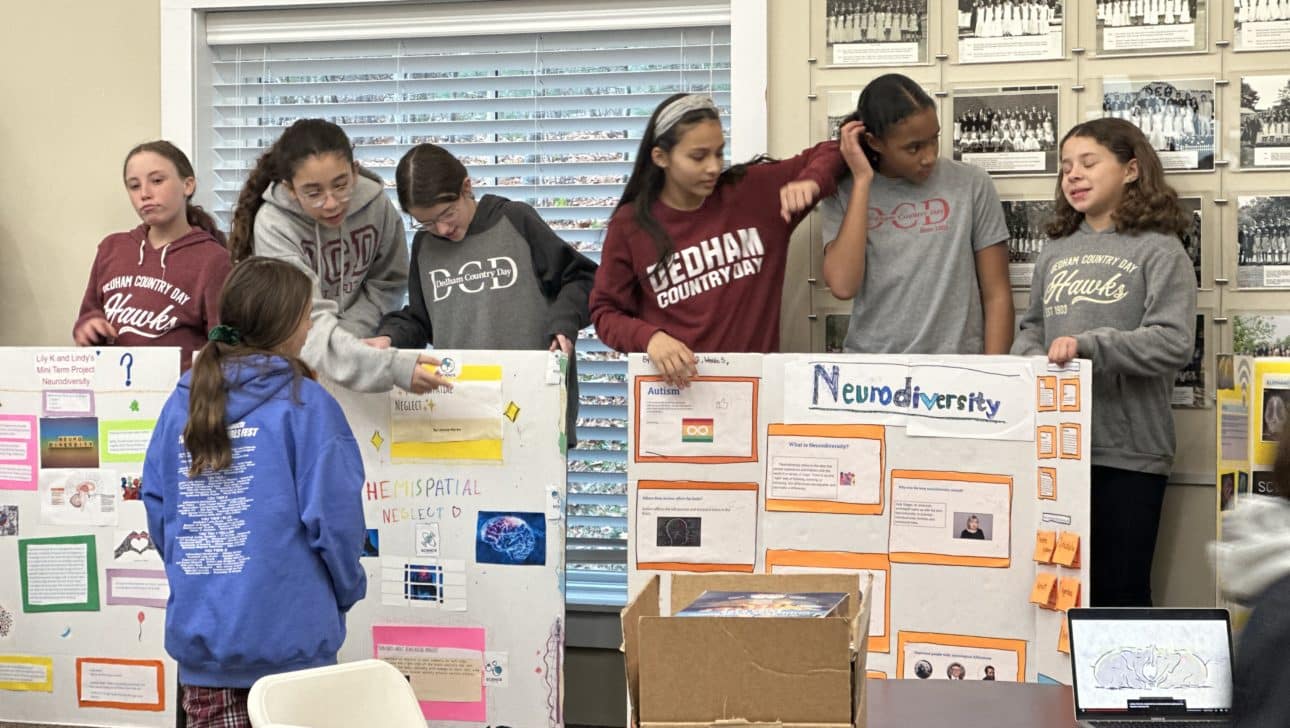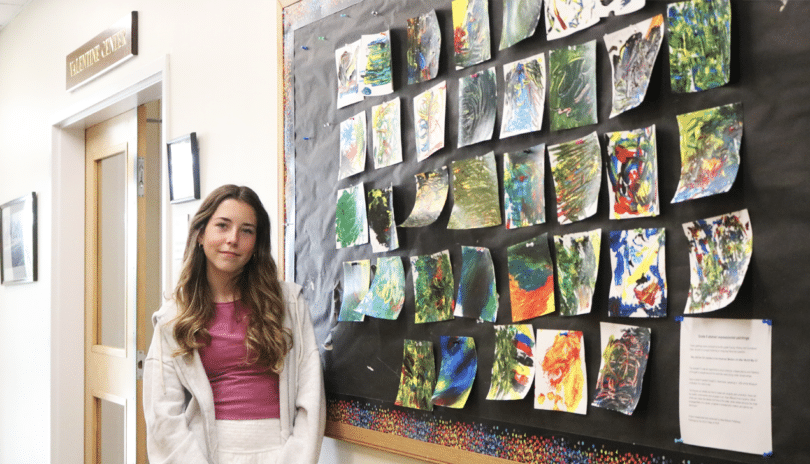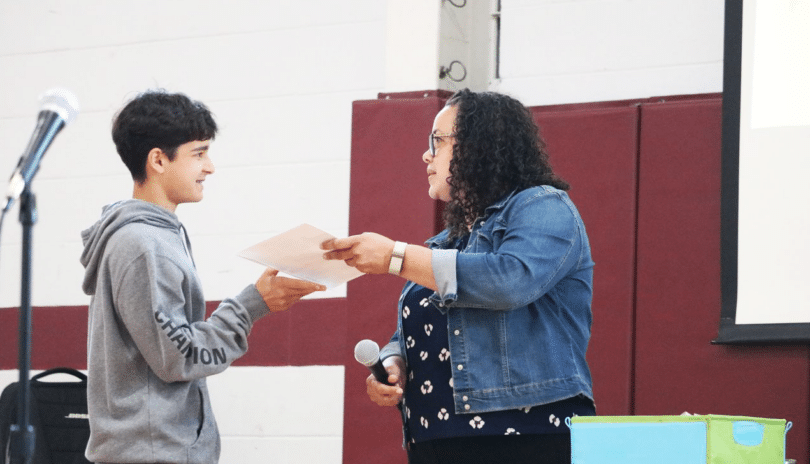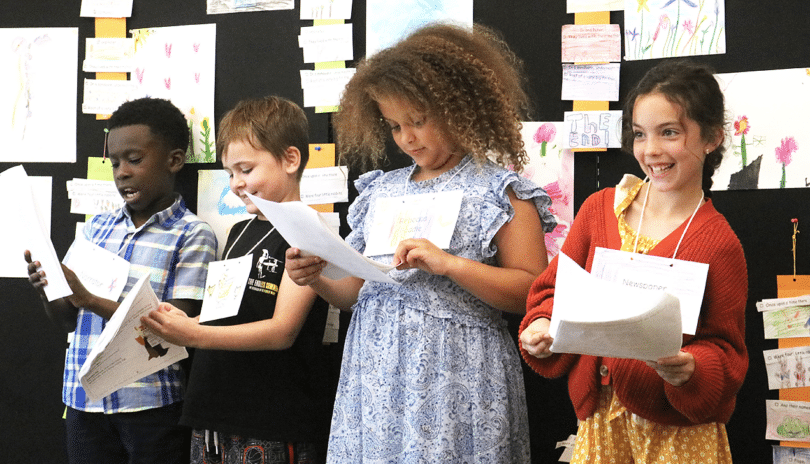Today marked the conclusion of DCD’s mini-term, which meant it was time for the Science Expo! After spending the past three weeks immersed in their special projects, sixth, seventh, and eighth graders today had the opportunity to demonstrate the results of their studies in an unforgettable presentation for their peers and families!
In sixth grade, students began mini-term with a class-wide study of the brain, before breaking off into small groups to pursue independent research projects and presentations related to their unanswered questions related to the topic. These projects led students to study more closely fields such as dreams, Alzheimer’s, the Mandela effect, optical illusions, neurodiversity, chronic traumatic encephalopathy, and hemispatial neglect. These impressively academic investigations demonstrate the wide-ranging interests of DCD sixth graders, and showcased their incredible depth of research, ultimately shedding light on that most inscrutable of organs.
Meanwhile, seventh graders devised their own self-directed, interdisciplinary projects that required planning, research, and an implementation of the scientific method to carry out from start to finish. These projects included the construction of a solar oven, candy machines, and a hockey stick, filming of stop-motion and live-action films, a study of smoothie-taste preferences, and the deployment of a snow machine built from scratch on the DCD campus! Through this instructor-supported process, students were able to explore projects of personal interest that don’t always fit into the standard curriculum, demonstrating how design-thinking and scientific testing manifest beyond the walls of the classroom.
Finally, eighth graders constructed their own Rube-Goldberg devices to act as a capstone on their study of simple machines. Starting from scratch, students first designed their devices, then went to work building, as the sound of hammers and saws filled the classroom. Pulleys, levers, and inclined planes were all at work on these intricate inventions, and repeated tests allowed the refinement and revision of the working processes. In the end, spectators watched in awe as a single rolling marble started a chain of events that ended up popping balloons, feeding dogs, teeing up a golf shot, offering a snack of cookies and milk, and even sending miniature skaters around a tiny pool of ice. After this project, students possessed a deeper understanding of the complex machines they encounter each day!
Best of all, the Science Expo allowed all middle school students to visit each of the presentations, hearing a full explanation from each student and thereby learning from the work of their peers and expanding their interest and understanding across the scientific spectrum!







